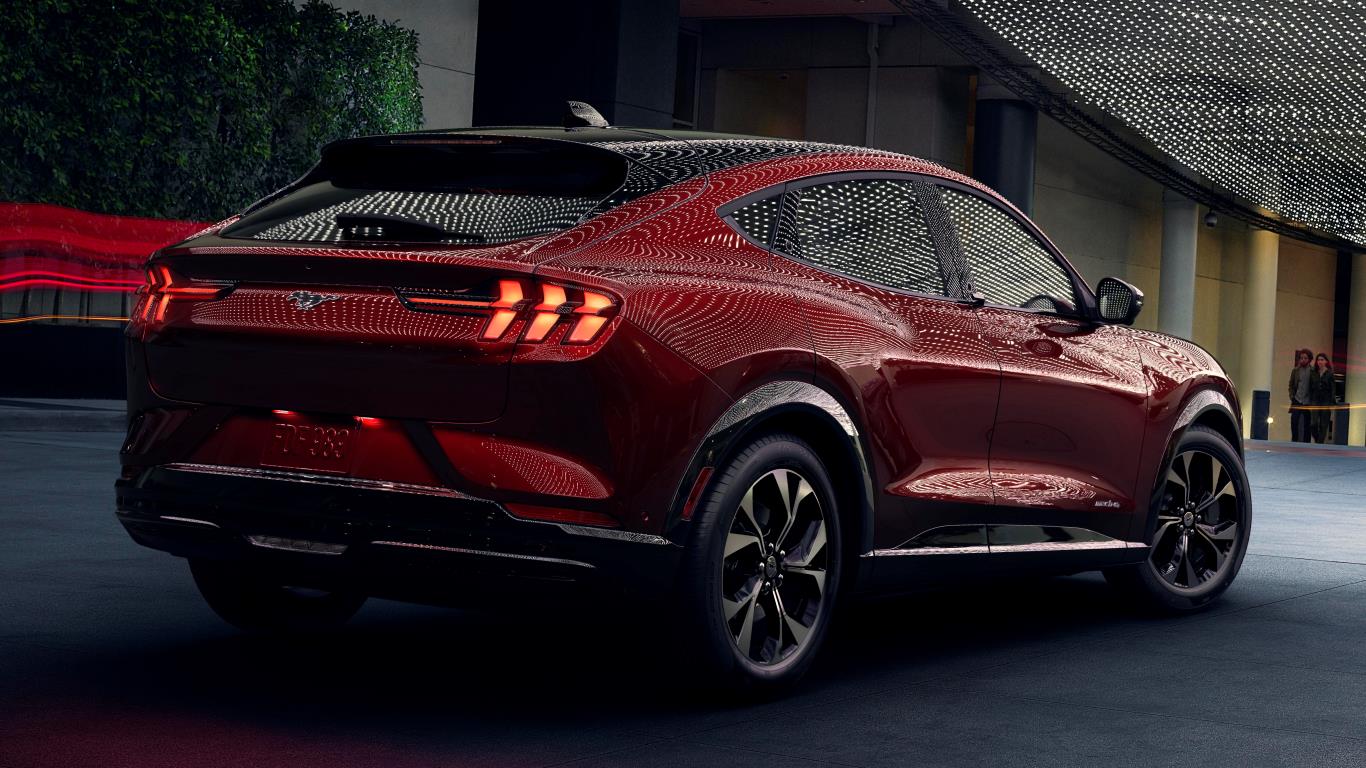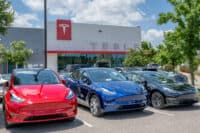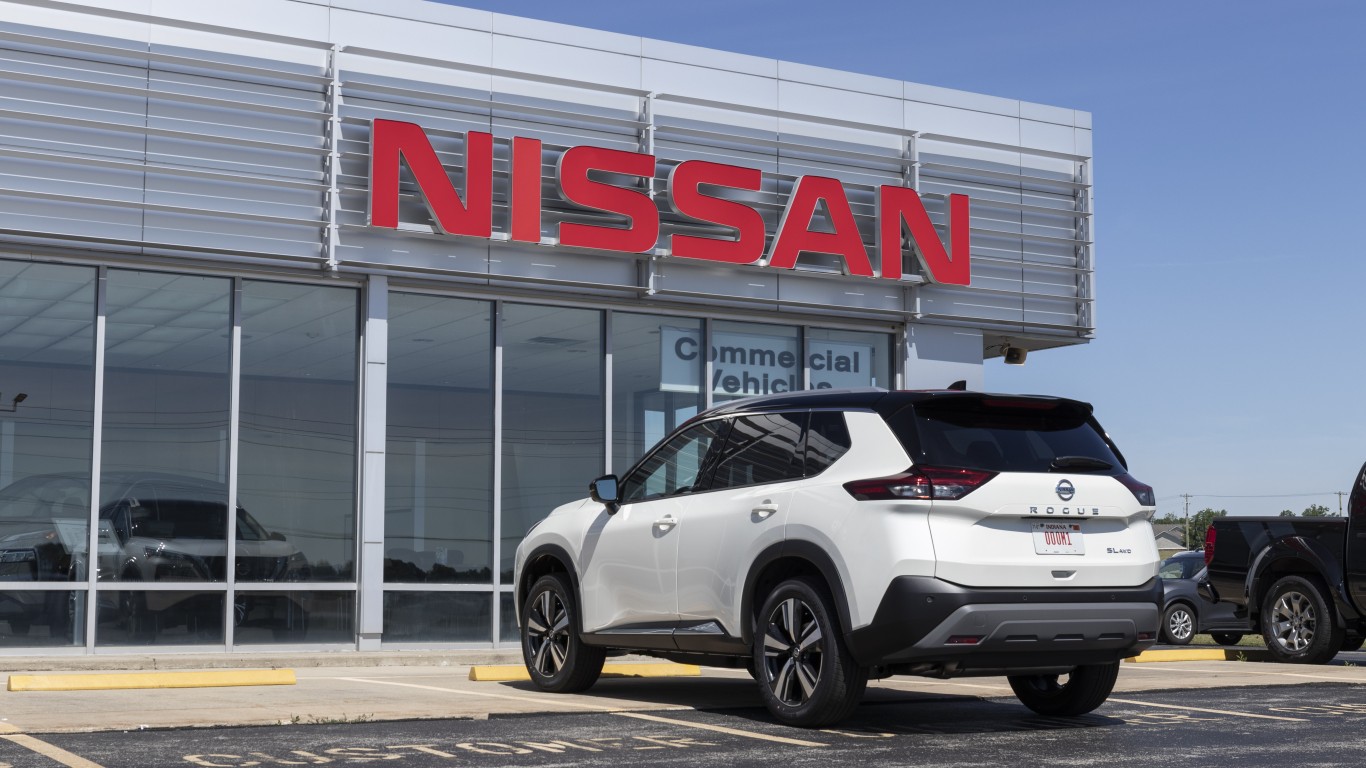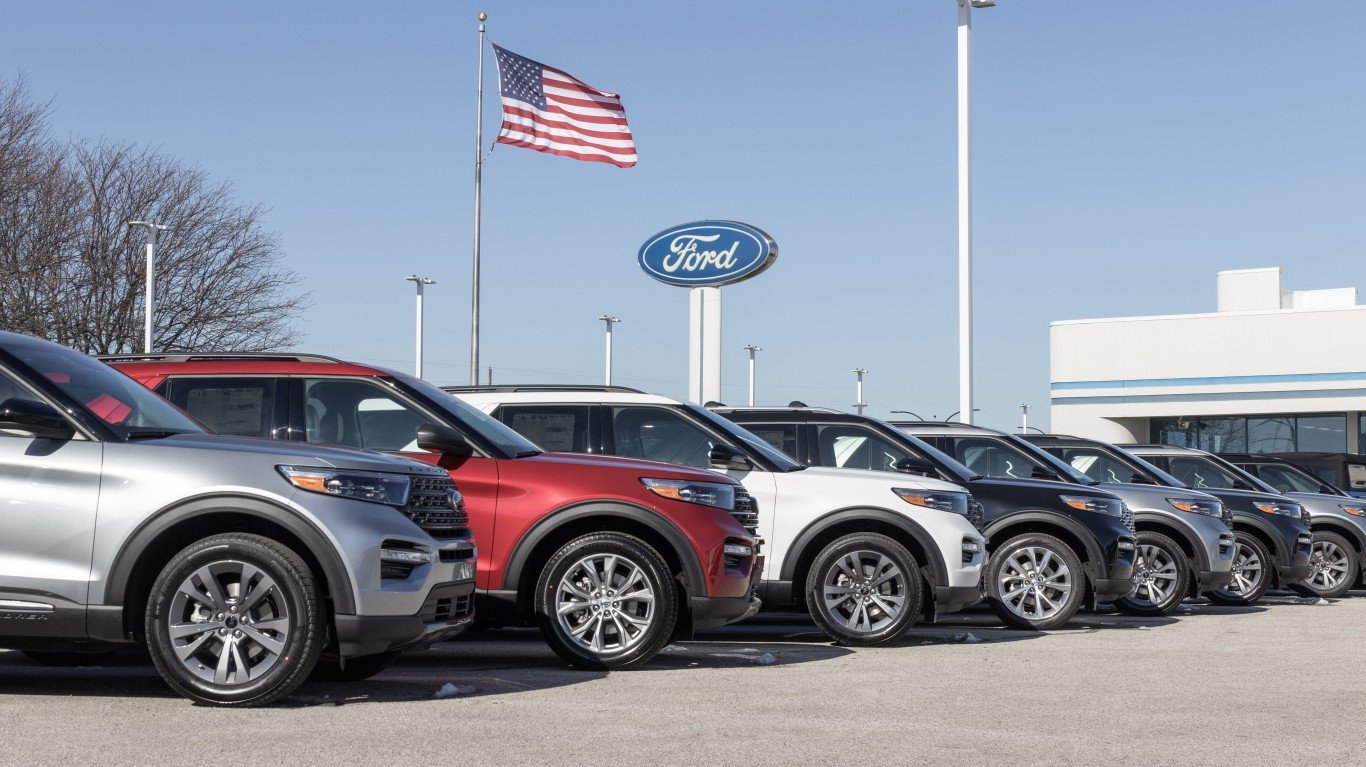

Ford Motor Co. (NYSE: F) and General Motors Co. (NYSE: GM) may face their worst year in a decade as coronavirus spreads around the world. The U.S. market may be difficult for them. However, it is China that could erode their numbers at a frightful level.
Ford’s stock has plunged 37% this year. GM’s stock price is down 29%, which is also a tremendous plunge, especially against the Henry Ford-founded corporation. Ford’s share price is at a five-year low. In early 2018, that price was above $13 a share.
So far in 2020, the S&P 500 is off 15% to about 2,741, a drop nearly unprecedented in the past year.
The world market faces a decline and capacity remains high. However, China faces collapse, and its global sales leadership is no longer guaranteed. The COVID-19 outbreak in the People’s Republic of China hit light vehicle sales, eroding them 80% in February.
U.S. sales of cars and light trucks have been above 17 million units a year since 2015. That is a recovery from the 10 million sold in 2010 at the depth of the recession. No one thinks sales will test that level in 2020.
A serious spread of COVID-19 could keep many people out of dealerships for a few weeks, or longer. It is imaginable that 2020 sector sales in the United States could decline to under the 16 million threshold. The industry manufacturing capacity is to build more cars than that. So, GM and Ford could experience severe erosion of U.S. margins.
GM and Ford do not just need to contend with competition in America. Among their strongest rivals are Fiat Chrysler, Toyota, Honda and Nissan.
In the luxury car segment, BMW, Mercedes, Lexus and Acura best GM’s Cadillac and the Ford Lincoln division in sales year after year. Between German manufacturers and Japanese auto conglomerates, the American luxury badges have little chance.
China’s market has been the holy grail for car companies since it overtook the U.S. market in 2009. It catapulted to 24.7 million in 2017. It plunged to 21.4 million last year.
Based on the drop-off in February, the number is likely to fall below 20 million in 2020 — if the spread of coronavirus does not start up again. The 20 million is at the high end of estimates.
Virtually no one believes auto sales in China will drop at the rate of 80% that they did in February. Even as they recover, GM and Ford are already in deep trouble. Ford’s sales fell 26% last year to 567,854, a deep threat to its future. The figure includes its joint venture partners.
GM’s China sales dropped 15% to 3.09 million, which will undermine its profit-and-loss picture. GM, along with its joint venture partners, is the second-largest manufacturer in the country.
The Electric Vehicle Market Is the Future
Ford might have a way to increase sales in the next few years, even if the Chinese and U.S. markets continue to struggle. The future of the global car industry, most analysts believe, is autonomous and electric vehicles (EVs). Another wave is expected to be shared travel, pioneered by Lyft and Uber.
Tesla leads the electric car business, and it does not appear that it will give up that lead soon. Virtually every other large manufacturer around the world has its own electric car initiative. GM recently released a “next-generation” electric car battery, which put it ahead of other manufacturers, including Ford.
One challenge to this technology is a shortage of metals. This includes nickel, lithium and cobalt. Other metals used in these cars include graphite and manganese.
Ford has said it can roll out 40 EVs or new hybrids in the next several years. This is part of Chief Executive Officer Jim Hackett’s retooling of the company.
Some pundits think this reinvention is impossible. Hackett’s boss, Executive Chairman William Clay Ford Jr., supports the plan. However, some think Hackett may hand in his resignation this year. Ford’s balance sheet is such that its dividend may be in jeopardy.
Hackett’s bet is aimed squarely at the Chinese market, where sales of electric cars have been solid and are likely to grow. The Chinese government understands it has an air pollution problem. This is partially due to car emissions. It is one of the largest challenges to the People’s Republic.
Some days, the government bans car traffic in major cities. Coal burning produces fine particulate matter (PM2.5) pollution, according to Greenpeace East Asia. Nitrous oxide from vehicles is believed to produce greenhouse gases, which worsens global warming triggers.
Autonomous Cars and a Self-Driving Future
Google’s Waymo is seen as among the vanguard of self-driving cars. New investment has lifted its valuation to $30 billion. Investment bank Morgan Stanley has put that valuation as high as $175 billion. Part of this is the future of ride hailing.
Ford needs to win in this space, but it appears to be behind.
Sponsored: Attention Savvy Investors: Speak to 3 Financial Experts – FREE
Ever wanted an extra set of eyes on an investment you’re considering? Now you can speak with up to 3 financial experts in your area for FREE. By simply
clicking here you can begin to match with financial professionals who can help guide you through the financial decisions you’re making. And the best part? The first conversation with them is free.
Click here to match with up to 3 financial pros who would be excited to help you make financial decisions.
Thank you for reading! Have some feedback for us?
Contact the 24/7 Wall St. editorial team.
 24/7 Wall St.
24/7 Wall St.

